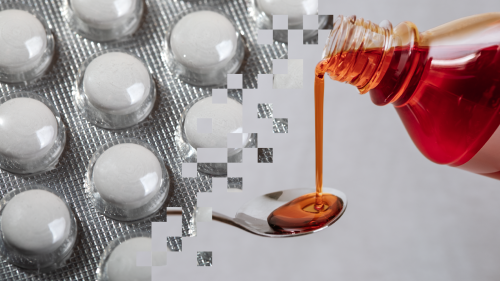Apetamin — An Illegally Imported Weight Gain, Figure Augmentation Product
FDA warns consumers Apetamin is potentially dangerous and has not been reviewed for safety and effectiveness

The U.S. Food and Drug Administration reviewed several incidents of serious adverse events associated with the use of Apetamin, which is being marketed illegally for weight gain and figure augmentation.
Apetamin is not an FDA-approved product. It is manufactured overseas and illegally imported into the U.S. Although the FDA restricted importation of Apetamin, the product continues to find its way into the U.S. market, often via online marketing and in some retail stores. Apetamin is heavily promoted and sold through social media, targeting people seeking to gain weight and achieve a certain physique.
Apetamin contains cyproheptadine, a potent antihistamine that requires a physician’s prescription in the U.S.
Dangerous Adverse Effects
Consumers may not be aware of the serious adverse effects associated with cyproheptadine or the amount that is contained in Apetamin. Because cyproheptadine is a strong antihistamine, which is often used to treat symptoms of allergies, it can cause sedation, cognitive impairment, dizziness, and low blood pressure. Antihistamine overdose is very dangerous, and within six hours may result in severe adverse effects such as:
- Disorientation and confusion
- Hallucinations
- Convulsions
- Decreased breath and heart rates
- Coma
- Death
Apetamin use may also decrease mental alertness and consumers should be warned about engaging in activities requiring mental alertness and motor coordination, such as driving a car or operating machinery. Strong antihistamines, like cyproheptadine found in Apetamin, may have additive effects when used with alcohol and other central nervous system depressants, (e.g., hypnotics, sedatives, tranquilizers, and antianxiety agents).
The agency reviewed several recent adverse event reports from the FDA Adverse Event Reporting System (FAERS) and the published literature involving young adults taking Apetamin and experiencing nervous system disorders (e.g., dizziness, sleepiness, and tremor), cardiac disorders (e.g., irregular heartbeat), and liver injury. In addition to the reported events, the FDA is concerned the real number of consumers experiencing adverse events is higher due to underreporting.
One published report describes a person who developed autoimmune hepatitis after six weeks of daily Apetamin use. This type of hepatitis is a chronic disease and could develop into a lifelong disease. It is treated with corticosteroids and immune system suppressors, and if left untreated, can cause liver failure.
Don’t Risk Your Health – Seek Professional Advice
Consumers, caregivers, and parents should seek medical advice from a health care professional for safe weight gain treatment options.
The FDA encourages anyone who suspects they have experienced an adverse medical event related to Apetamin, or other similar products, to report this using FDA's MedWatch Adverse Event Reporting program, using the Center for Food Safety and Applied Nutrition Adverse Event Reporting System, or by calling 1-888-SAFEFOOD (1-888-723-3366).
Additionally, you can reach out to your local consumer complaint coordinator: Consumer Complaint Coordinators.
